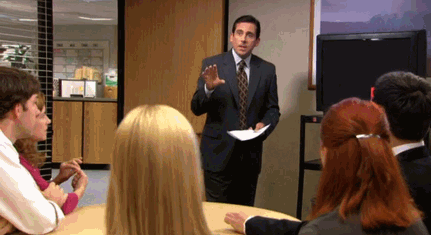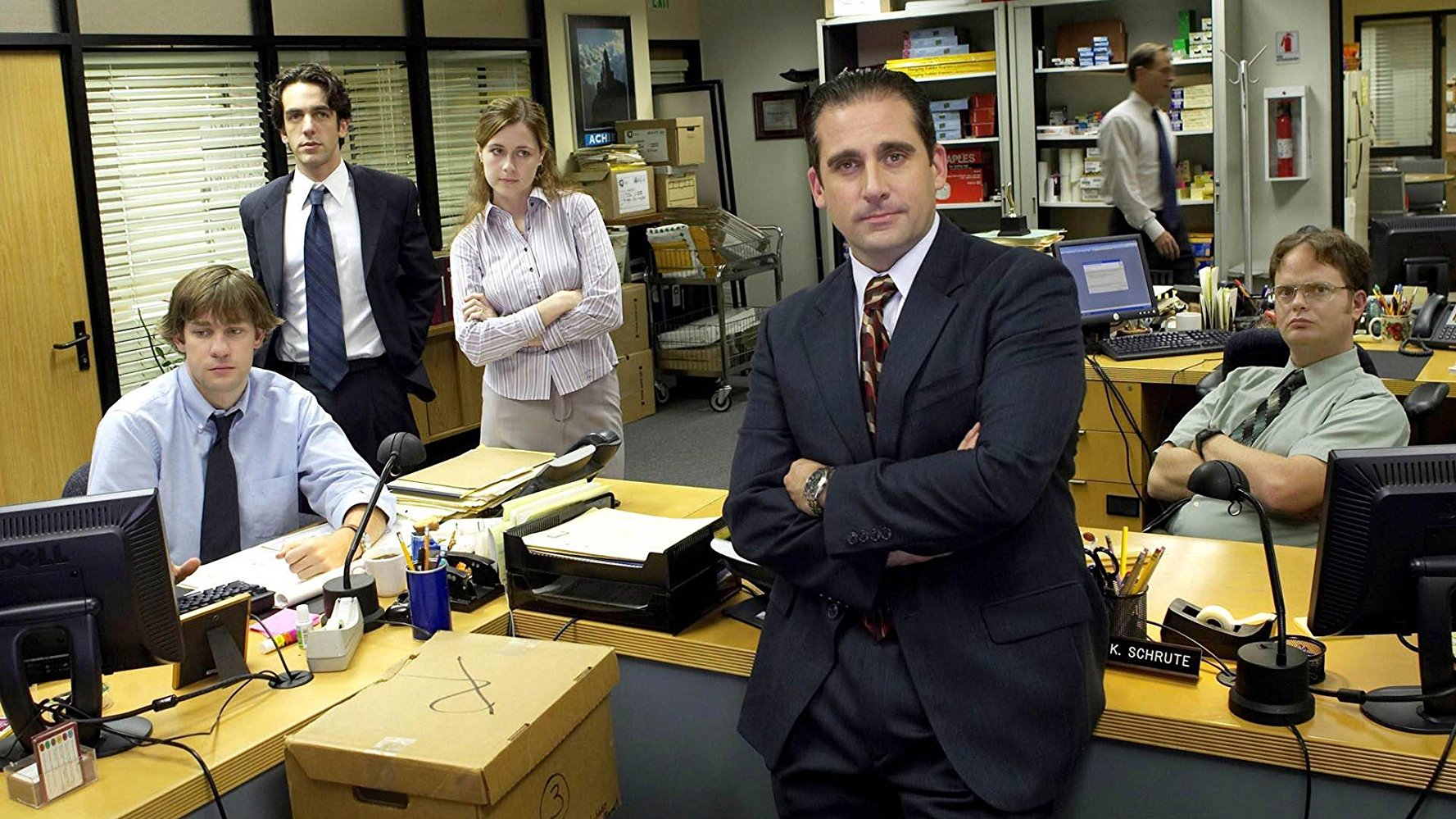When it comes to successfully navigating the workplace, few skills are as crucial as mindful communication. As it turns out, The Office (in this case, the American version) is a surprising source of lessons in effective — and ineffective — ways to communicate mindfully. Here are some of our favorite examples:
Scheduled meetings should all have clear goals
If there’s one thing Michael Scott (Steve Carell) loves more than his favorite pair of jeans, it’s holding meetings. Unfortunately for the crew at Dunder Mifflin, they don’t always have a clear focus and often end up being a waste of time.

According to a recent report by The Economist Intelligence Unit and Lucidchart, 78 percent of participants indicated that having specific goals for all office meetings would go a long way towards improving overall workplace communication.
Peer-to-peer communication matters
It makes sense that having open lines of communication with our managers is crucial to workplace success, but the same holds true for co-workers who are peers. In fact, according to a 2005 study, relationships between colleagues who are peers tend to involve an even larger amount of trust and self-disclosure. In turn, they perceive the information they share with one another as more accurate, useful, and timely than colleagues at different management levels.
So when Dwight sets off the fire alarm to demonstrate how ill-prepared the office was for an emergency, his co-workers initially took his warnings to evacuate, and suggestions for how to do so, at face-value. (After all, as their peer, he was trusted.)
Don’t mix good news and bad news
When being compassionately direct with colleagues, it can be tempting to deliver some good news along with the bad news. Michael Scott is the king of doing this — or, really, of trying to avoiding communicating bad news altogether — most notably in the episode where he puts Dwight in charge of selecting the cheapest health insurance plan possible, and then puts him in charge of informing the rest of the group of the decision.
The Harvard Business Review advises against “sandwiching” bad news with something more pleasant. In this episode, Michael does the opposite, buying ice cream sandwiches for the office to help soften the blow of the unfavorable new health insurance policy. It’s much better practice to own the news you’re delivering, and deliver it directly.

Managers should lead with compassion
It’s no secret that Michael runs the office with his heart more than his head. While this isn’t necessarily the most efficient method, it’s heartening to watch as he takes pride in his employees succeeding — whether it’s Ryan attending business school, or Jim and Pam announcing their engagement.

According to a 2014 study, managers are in a unique position to promote workplace compassion by treating employees as whole people, while respecting and validating their emotions. Michael certainly does this with some employees, but not everyone. He routinely dismisses Kelly as flighty and dramatic, and basically never has anything nice to say to or about Toby. This isn’t always the best for workplace morale — at Dunder Mifflin and elsewhere.
Even though the “World’s Best Boss” mug that Michael purchased for himself may not be entirely accurate, there is plenty we can learn about mindful communication from the gang in Scranton.
Follow us here and subscribe here for all the latest news on how you can keep Thriving.
Stay up to date or catch-up on all our podcasts with Arianna Huffington here.


